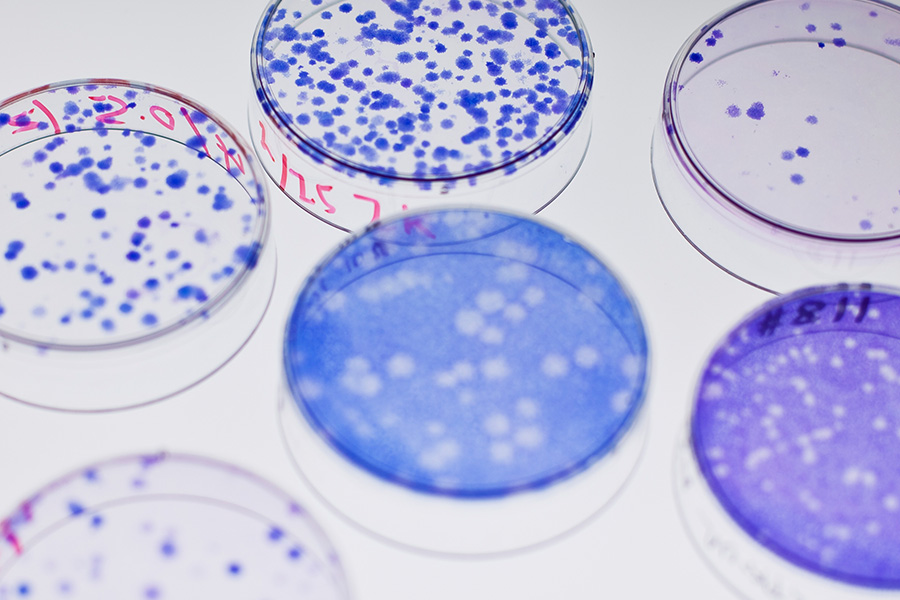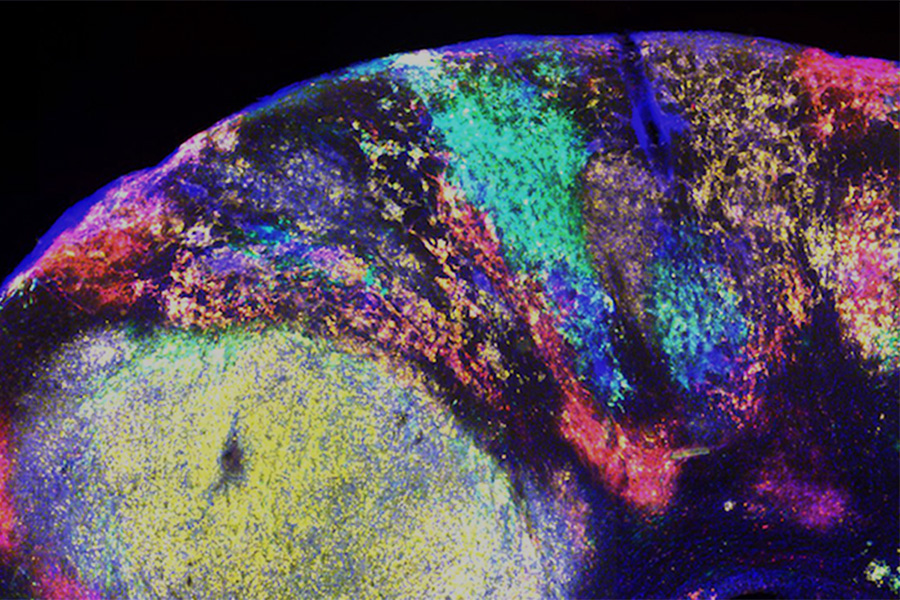Research
Biology research in the College of Liberal Arts and Sciences (CLAS) primarily takes place in three departments: Ecology and Evolutionary Biology, Molecular and Cell Biology, and Physiology and Neurobiology. Researchers in these departments study biological concepts at every level, from the smallest building blocks of life to the most complex systems on the planet. They make new discoveries in their core disciplines. Many of them contribute to interdisciplinary work with scholars across UConn, in fields like neuroscience, environmental studies, marine sciences, and geosciences.
CLAS biology faculty are internationally-recognized scientists committed to educating and mentoring learners at all levels. They engage with students in classrooms, in laboratories, and in the field. They also impact our communities through outreach programs and by applying their work to health care, government, education, and other important industries.
Research by Department

Ecology and Evolutionary Biology
Researchers in the Department of Ecology and Evolutionary Biology (EEB) study how plants and animals interact, evolve, and adapt, from the level of individual organisms to the population, community, and ecosystem levels. Their findings in the lab and in the field help us better understand important topics like how organisms behave, the impact of climate change on our environment, and the processes that led to the diversity of life on Earth today.
UConn EEB research spans the following areas:
- Animals
- Conservation Biology
- Ecology
- Evolution
- Plants
View the EEB faculty directory and explore undergraduate research areas.

Molecular and Cell Biology
Researchers in the Department of Molecular and Cell Biology (MCB) study the structure and function of cells and molecules. Their work covers a wide range of topics including virology, symbiosis, microbiomes, immunology, molecular evolution, chromosome biology, genome organization, functional genomics, stem cell biology, cancer biology, muscle development, actin dynamics, membrane biology, bacterial pathogenesis, drug discovery, and genome inheritance.
UConn MCB research spans the following areas:
- Cell and Developmental Biology
- Microbiology
- Structural Biology, Biochemistry, and Biophysics
- Genetics and Genomics
View the MCB faculty directory and explore faculty research interests.

Physiology and Neurobiology
Researchers in the Department of Physiology and Neurobiology (PNB) study the diverse functions of the brain and body. Their research takes a multidisciplinary approach that incorporates genetic, molecular, cellular, systems, and behavioral strategies. By integrating work across these areas, PNB research advances our understanding of brain-body functions and interactions under normal conditions and disease.
UConn PNB researchers have expertise in the following areas:
- Molecular Biology and Cell Signaling
- Circuit and Behavioral Neuroscience
- Development, Disease, and Tissue Repair
- Biology Education Research
View the PNB faculty directory and explore faculty research labs.